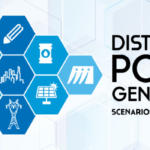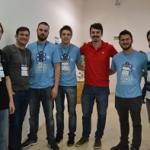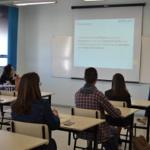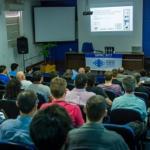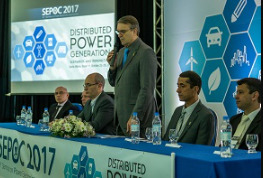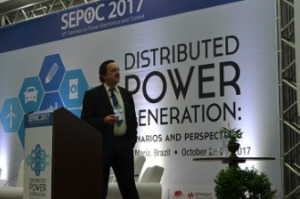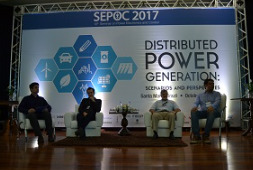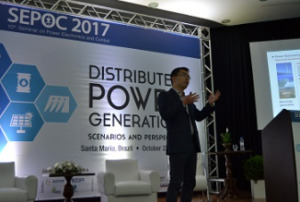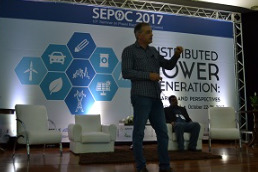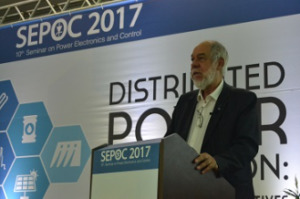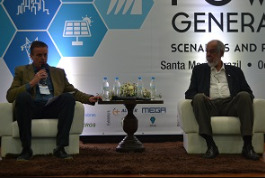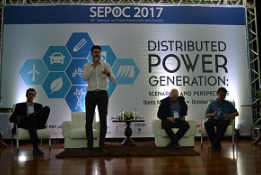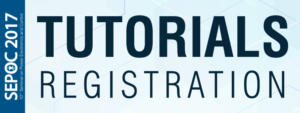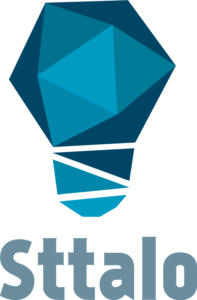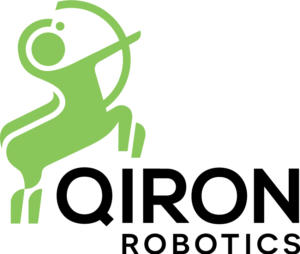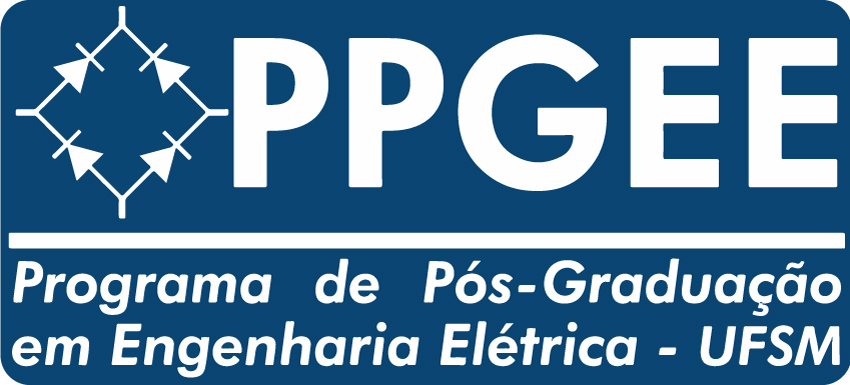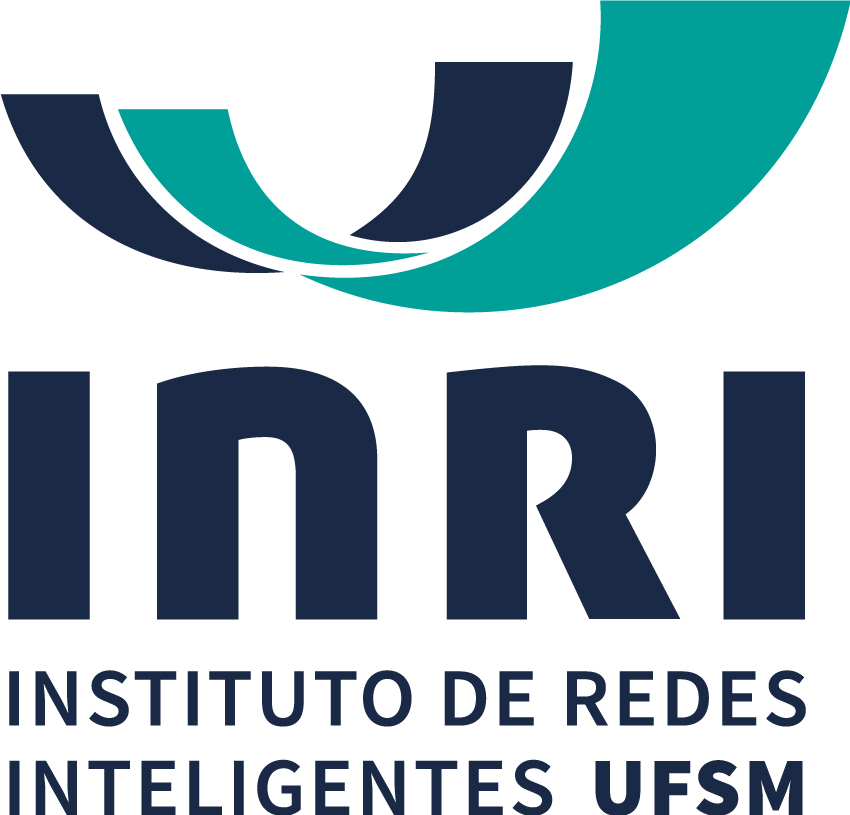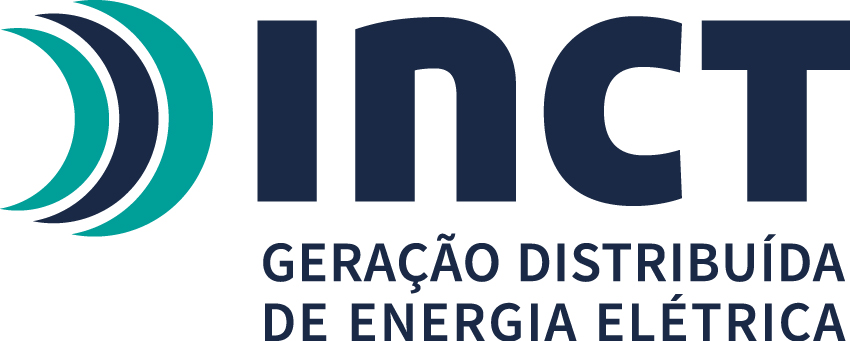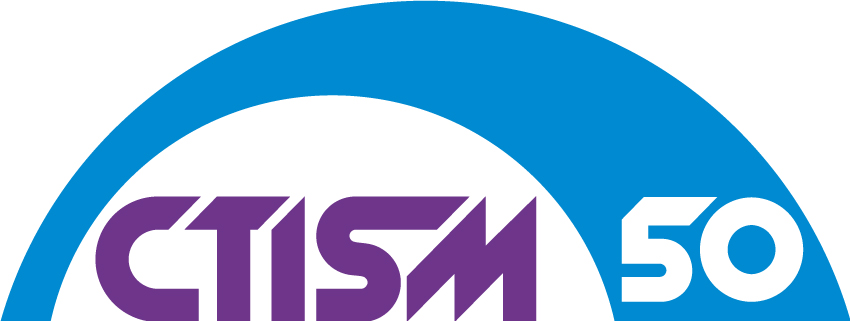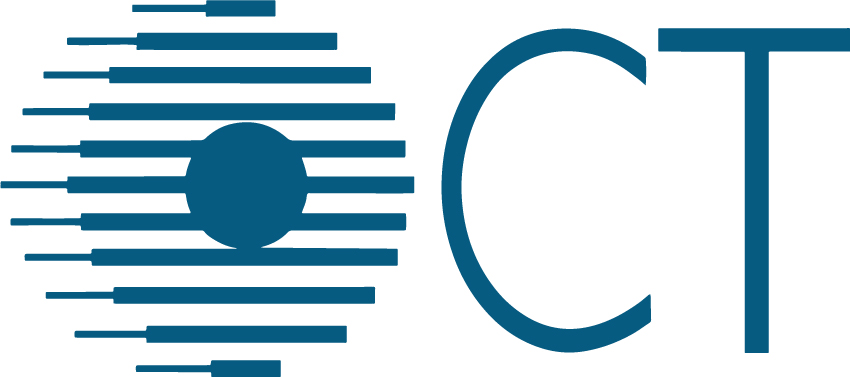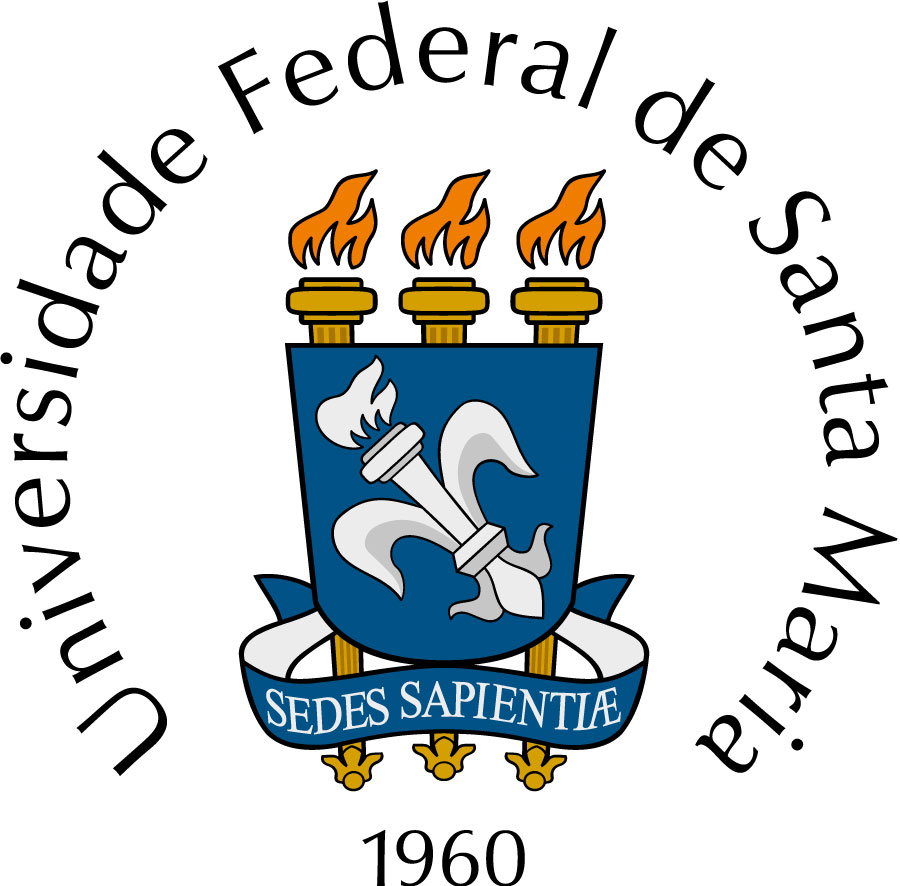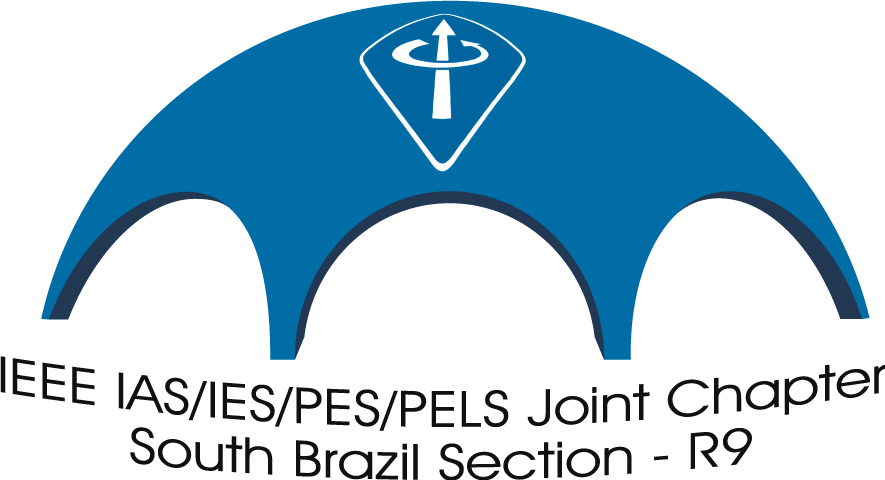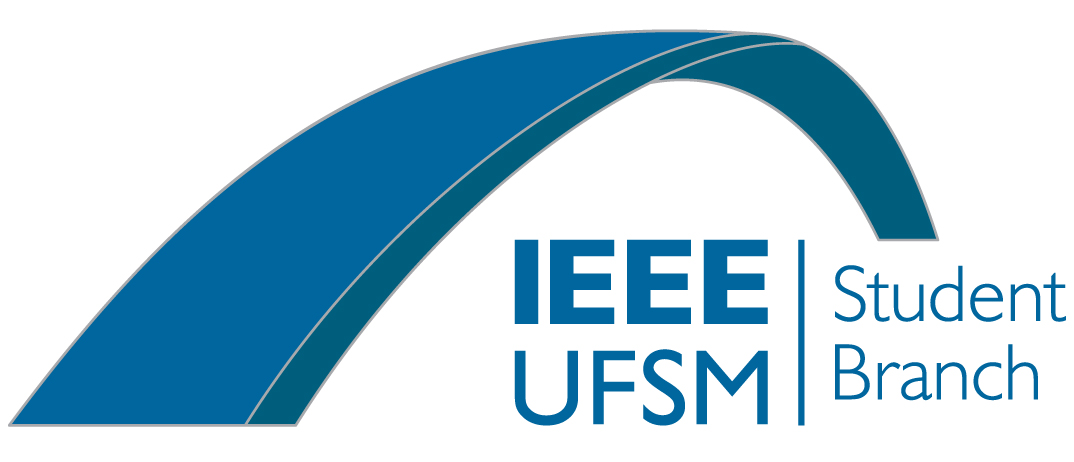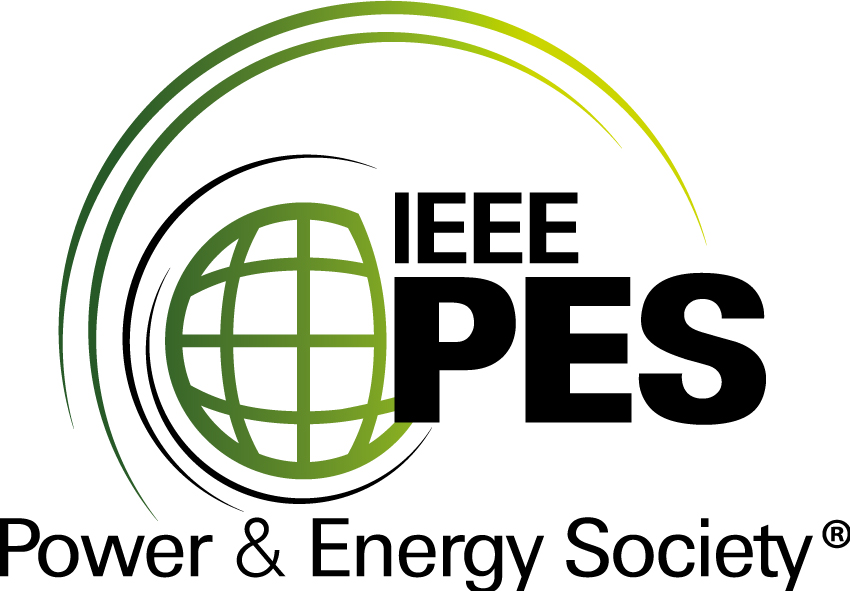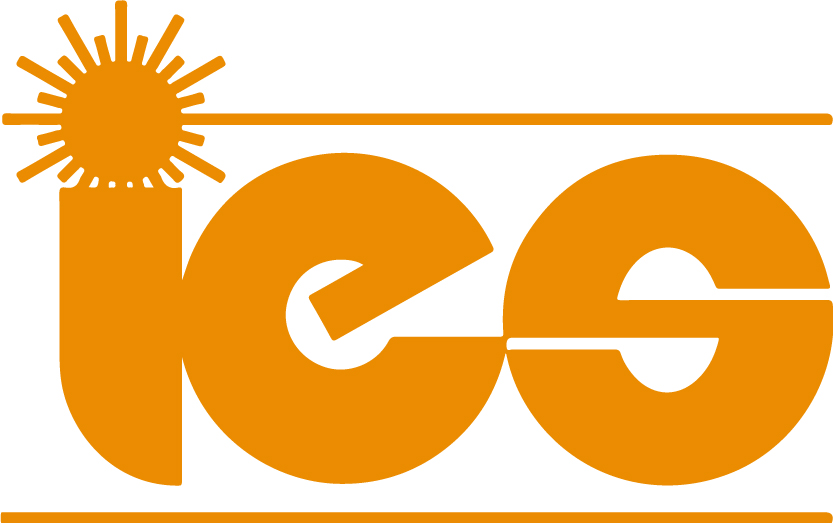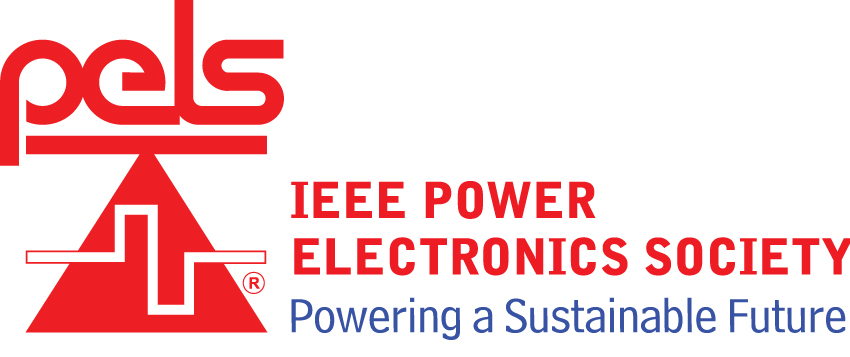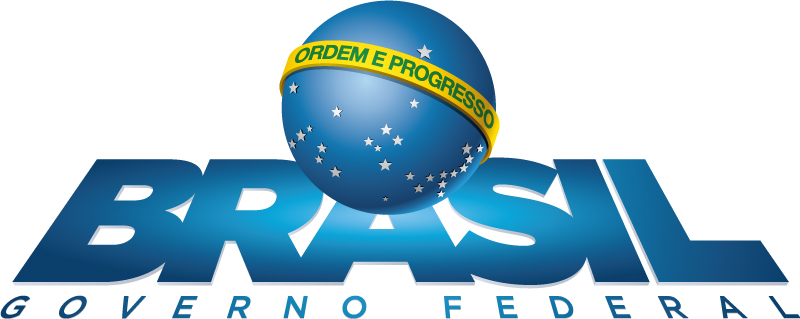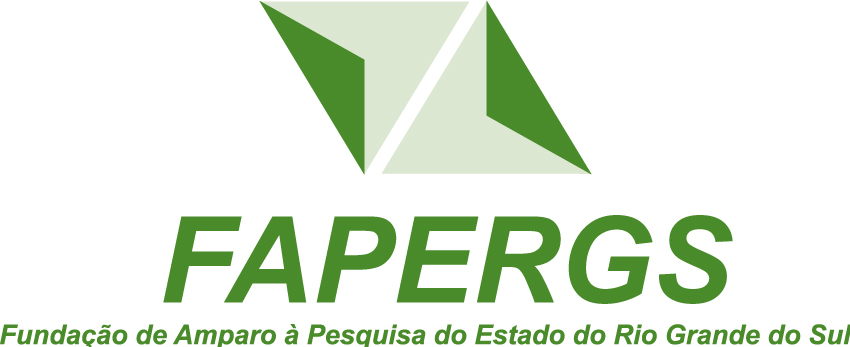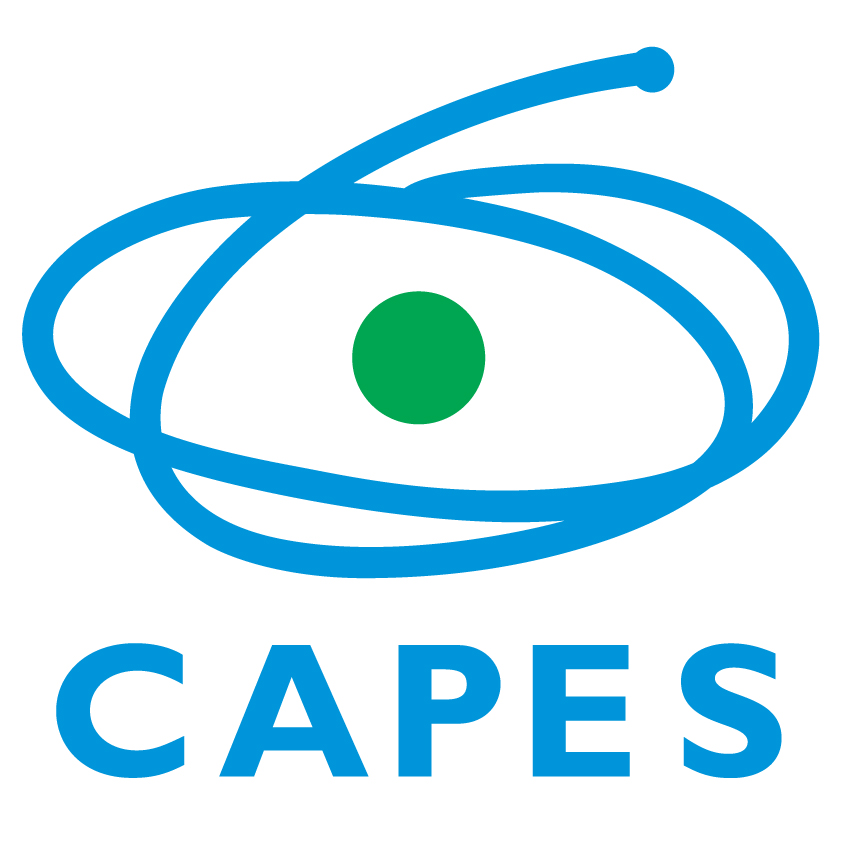Centro de Tecnologia - UFSM - Santa Maria
22/10/2017 09:00 - 25/10/2017 18:30
Descrição
SEPOC 2017 is the 10th edition of the Seminar on Power Electronics and Control and this year the conference will be held with the IEEE seal. The meeting will take place at the Technology Center of the Federal University of Santa Maria and is organized by the IEEE Chapters and Student Branch.
The seminar’s objective is to provide interaction among academia and industry to discuss the latest cutting-edge technologies on Power Electronics and Control and their applications. In 2017, the conference is themed on distributed power generation.
Organizing Committee
| General Chairs:
José Renes Pinheiro, Dr. Eng. (Chair) Caio Ruviaro Dantas Osorio, Ms. Eng. |
Program Chairs:
Rodrigo Padilha Vieira, Dr. Eng. (Chair) João Manoel Lenz, Ms. Eng. |
| Technical Program Commitee:
Rodrigo Padilha Vieira, Dr. Eng. (Chair) Fernanda de Moraes Carnielutti, Dr. Eng. Daniel Pinheiro Bernardon, Dr. Eng. Gustavo G. Koch, Me. Eng. |
Finance Commitee:
Robinson Figueiredo de Camargo, Dr. Eng. (Chair) João Manoel Lenz, Ms. Eng. Priscilla Ertmann Bolzan, Ms. Eng. Thieli Smidt Gabbi, Ms. Eng. Renan Rodrigo Duarte, Ms. Eng. |
| Infrastructure Commitee:
Marcelo Freitas da Silva, Dr. Eng. (Chair) Leandro Roggia, Dr. Eng. Jonas Roberto Tibola, Dr. Eng. André Nicolini, Ms. Eng. |
Publicity Commitee:
Roger Mateus Karnopp, Eng. (Chair) Rafael Concatto Beltrame, Dr. Eng. Alisson Mazzorani, Eng. |
Scientific Committee
External Members
Arturo Bretas – University of Florida, USA
Luiz A. C. Lopes – Concordia University, Canada
Josep Pou – Nanyang Technological University, Singapore
Huai Wang – Aalborg University, Denmark
André L. Kirsten – Universidade Federal de Santa Catarina
Denizar C. Martins – Universidade Federal de Santa Catarina
Gustavo Finamor – Universidade Federal de Santa Catarina
Jean Patric da Costa – Universidade Tecnológica Federal do Paraná
Fabricio Dupont – Universidade Regional Integrada do Alto Uruguai e das Missões, Chapecó
Hamiltom Sartori – Universidade Regional Integrada do Alto Uruguai e das Missões, Frederico Westphalen
Nelson K. Neto – Universidade Regional Integrada do Alto Uruguai e das Missões, Santo Ângelo
Eisenhawer Moura – Universidade Federal de Campina Grande
Felipe Grigoletto – Universidade Federal do Pampa, Alegrete
Fernando K. Guarda – Universidade Federal do Pampa, Alegrete
UFSM Members
Adriano P. Moraes – CTISM
Aécio Oliveira – Campus Cachoeira do Sul
Carlos H. Bariquello – GEDRE
Cassiano Rech – GEPOC
Daniel Bernardon – CEESP
Fábio Bisogno – GEPOC
Fernanda Carnielutti – Campus Cachoeira do Sul
Jorge R. Massing – GEPOC
Lucas V. Bellinaso – Campus Cachoeira do Sul
Leandro Michels – GEPOC
Marco Dalla Costa – GEDRE
Mário L. Martins – GEPOC
Maurício Sperandio – CEESP
Rafael A. Pinto – GEDRE
Rodrigo Varella – Campus Cachoeira do Sul
For Authors
Templates
Prospective authors are invited to electronically submit full regular papers of their work. The conference will favor original papers, not previously published or copyrighted, which put in evidence partial or complete results on research areas listed in the Call for Papers.
- Papers should be between four and six pages in PDF format, according to the template;
- Research articles can be written in Portuguese, English or Spanish;
- Do not include author names, affiliations, and acknowledgments in the first version;
The templates in Word and LaTeX format are provided below:
- Word: Download
- LaTeX:
A final version of accepted papers must be submitted according to the conference deadline, in accordance with reviewers’ suggestions. Moreover, in order to be published in the SEPOC 2017 proceedings, accepted papers must be presented during the conference and at least one author must be registered for a Professional Registration.
Submission
The papers must be submitted through the SWGE platform.
Final Version
A final version of accepted papers must be submitted through the SWGE platform, according to the conference deadline.
After being logged on SWGE, access your “My papers” area and upload the new version of your paper according to the reviewers’ comments and suggestions. Optionally, you may also upload a file with your response to the Editor-in-Chief.
The final version must follow the same template as before (here) and contain all authors names and information.
Don’t forget: in order to be published in the SEPOC 2017 proceedings, accepted papers must be presented during the conference and at least one author must be registered for a Professional Registration.
Guidelines for Presentations
Congratulations! You are going to present a paper at SEPOC 2017 in Santa Maria.
The SEPOC committee wishes you good luck with your preparation! Much of the preparatory work will focus on small details. Consequently, do not underestimate the time this will take.
These notes have been written to help you.
Author’s Checklist:
a) At home
- prepare the presentation according to the suggested model (Template Presentation);
- make the presentation preferably in the English language;
- try out the presentation;
- be aware that you have a limited time of 15 minutes for your presentation, plus 5 minutes for discussions;
- Write your biography. The Chair will use this information to present you to the audience.
b) 10 minutes before the session
- go to the presentation room;
- meet the session chairman;
- deliver your presentation and your biography to him.
c) At the session
- speak slowly and as simply as possible;
- stick to the time limit;
- the papers can be presented in Portuguese, English or Spanish.
Remember that we will have listeners from other countries, so try to use this opportunity to practice you communications skills in English.
The UFSM
The Federal University of Santa Maria is situated in the city of Santa Maria, in the central part of the state of Rio Grande do Sul. The city is located 290km west from the State Capital, Porto Alegre.
Established in 1961, UFSM is a governmental, regionally oriented University which has as main purpose to perform teaching, research and extension activities. UFSM has as mission professional formation, generating and cultivating science and technology in the interest of regional development and the transmission of universal knowledge. It was the first Federal University established upstate in Brazil.
UFSM offers s large range of undergraduate and graduate programs, and also counts with technical schools which give opportunity for younger students to graduate as technicians in several areas.
With the purpose of maintaining positive communication with its internal community and with the public in general, the University has a Radio and a TV Station and the UFSM Web Portal – www.ufsm.br
In order to support its central activities, UFSM has a complex administrative infrastructure which includes the Campus Administration Offices, the President’s Office, the University Council and auxiliary departments.
On the main campus you will also find bank agencies and ATM’s, post offices, snack bars, gas stations and other facilities.
Furthermore, the University counts with a School Hospital, a Veterinary School Hospital, Libraries, University Restaurants, a School Pharmacy, a Planetarium, the Gama D’Eça Museum, a Botanic Garden and laboratories in several areas.

Travel and Transportation
Santa Maria is located 290km west from the State Capital, Porto Alegre.
International Airport Salgado Filho
Porto Alegre (POA) to Santa Maria (RIA)
To consult dates and times, access: https://www.voeazul.com.br
Bus Station of Porto Alegre
Porto Alegre to Santa Maria
http://www.rodoviaria-poa.com.br
(55) 3228-0699
Bus Station of Santa Maria
Santa Maria to Porto Alegre
http://www.rodoviariasantamaria.com.br
(55) 3222-4747
Public Transportation
Access:
http://www.simsm.com.br/horarios/
Taxi – Coopaver
(55) 3302-4500


Hotel Information
Park Hotel Morotin
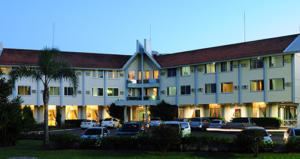
Os Hotéis Morotin estão com tarifas especiais para os participantes do SEPOC 2018. Maiores informações no link:http://morotin.com.br/parkhotelmorotin/promocao/sepoc-2018/
Address: BR 287 – KM 239 – Nº 1981
Reservation: http://morotin.com.br/parkhotelmorotin/promocao/sepoc-2018/
(55) 3220-1600
Information:
- Parking
- Breakfast
- WiFi
More access for your convenience:
- 7 km of the UFSM
- 10 km of the Airport Air Base Santa Maria
- 3.6 km of the city’s main Bus Station
Hotel Dom Rafael Executivo and Hotel Dom Rafael Express
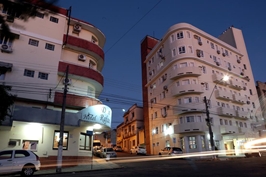
Address: Av. Rio Branco, 228 – Centro
http://hoteldomrafael.com.br/dom-rafael-executivo/
http://hoteldomrafael.com.br/dom-rafael-express-centro/
Reservation:
(55) 2101-1212 (Executivo) / (55) 2101-1920 (Express)
reservas@hoteldomrafael.com.br
Information:
- Parking
- Breakfast
- WiFi
More access for your convenience:
- 12.2km of the UFSM
- 14km of the Airport Air Base Santa Maria
- 3.4km of the city’s main Bus Station
Altadomo Hotel Santa Maria
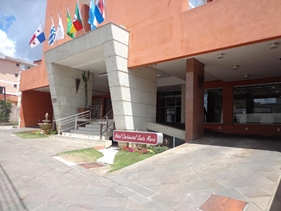
Address: R. Benjamin Constant, 1209 – Nossa Sra. das Dores
http://www.altadomo.com.br
Reservation:
(55) 3028 7070
reservas@altadomo.com.br
Information:
- Parking
- Breakfast
- WiFi
- Indoor swimming pool
More access for your convenience:
- 10km of the UFSM
- 12km of the Airport Air Base Santa Maria
- 2.9km of the city’s main Bus Station
Itaimbé Palace Hotel
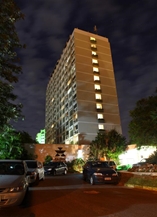
Address: Venâncio Aires, 2741 – Centro
http://hotelitaimbe.com.br/hotel-itaimbe-santa-maria/
Reservation:
(55) 9216.2785 / (55) 3220.1144
Information:
- Parking
- Breakfast
- WiFi
More access for your convenience:
- 11km of the UFSM
- 13km of the Airport Air Base Santa Maria
- 2.9km of the city’s main Bus Station
Hotel Morotin
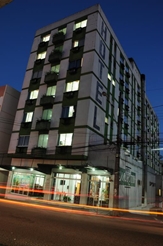
Address: R. Ângelo Uglione, 1629 – Centro
http://morotin.com.br/hotelmorotin/
Reservation:
(55) 3220-5200
Information:
- Parking
- Breakfast
- WiFi
More access for your convenience:
- 11km of the UFSM
- 13km of the Airport Air Base Santa Maria
- 3.2km of the city’s main Bus Station
Pousada Dom Alcides
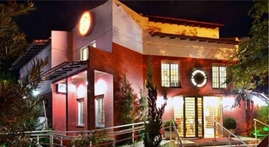
Address: R. Rogério Tochetto, 495 – Ns. de Lourdes
http://www.pousadadomalcides.com.br
Reservation:
(55) 3222.4174
Information:
- Parking
- Breakfast
- WiFi
More access for your convenience:
- 10km of the UFSM
- 12km of the Airport Air Base Santa Maria
- 220m of the city’s main Bus Station
Videos:
| Opening Ceremony, October 22
(ends at 38min) |
Lecture by Prof. Dr. Maria Valla, October 22
(starts at 38min) |
Lecture by Dr-Ing. Matthias Radecker, October 23
|
|
| Rap Session, October 23
|
Lecture by Prof. Dr Huai Wang, October 24
|
Special Session of Invited Papers, October 24
|
|
| Lecture by Prof. Dr Jorge Guimarães, October 25
|
Panel Discussion 02, October 25
(starts at 1h35min) |
Panel Discussion 03, October 25
|
Slides & Presentations
Programação
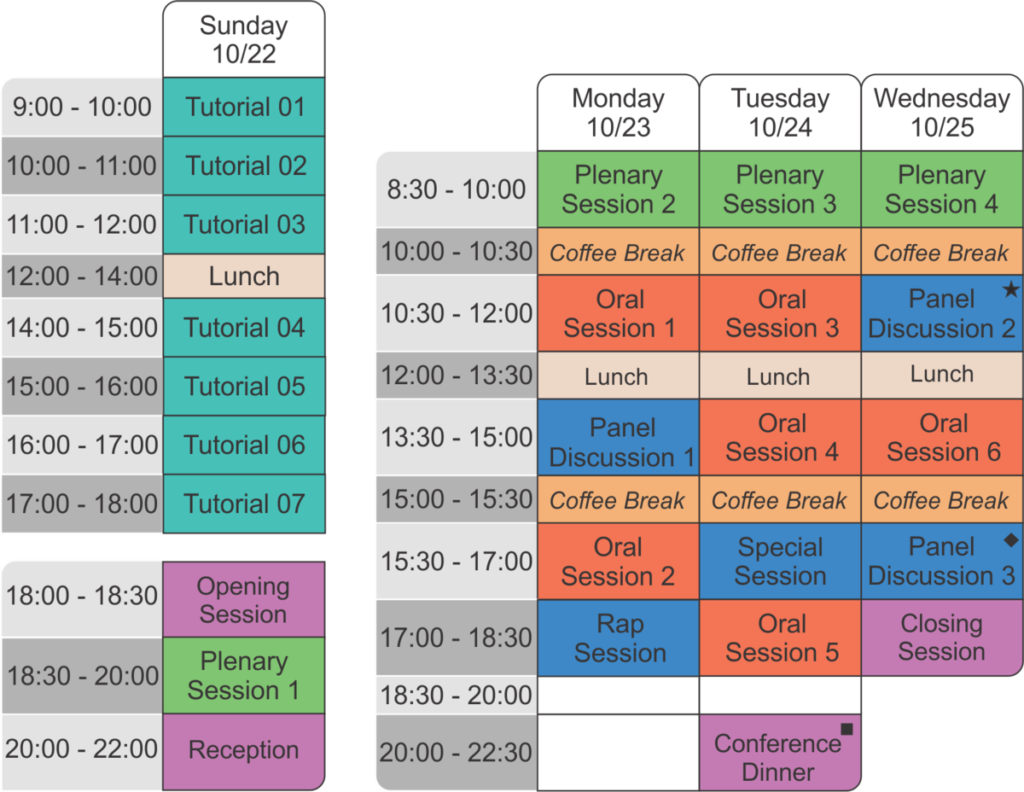
Tutorial 01: As inúmeras possibilidades que a impressão 3D oferece!
22/10 (Sunday): 09:00 – 10:00
Abstract: Minicurso prático que busca sanar dúvidas e apresentar a impressão 3D e as possibilidades que a mesma oferece para diferentes áreas através da abordagem dos programas de modelagem tridimensional, tipos de filamentos empregados e suas finalidades bem como os campos de aplicação em que a Impressão 3D tem grande potencial de aplicação.

Speaker: Jaqueline Oliveira
Jaqueline Oliveira é sócia-diretora da Sttalo – Impressões 3D. Acadêmica de Engenharia Civil da UFSM e pós júnior da Base Jr. Empresa Jr de Engenharia Civil e Arquitetura da UFSM.
Tutorial 02: Manipulation of Humanoid Robotics Actuators
22/10 (Sunday): 10:00 – 11:00
We believe that robotics and programming are essential skills for our evolution as asociety. Through the talent of professionals who have collaborated with universities in Germany, Canada, South Korea and Japan we have developed our own robots and prepared children and young people for the present and the future through courses on the subject.
Abstract: This workshop will present the technical specifications from Dynamixel XL320 servo motor, made by Robotis, which can be controlled by utilization of the asynchronous half duplex serial communication protocol, Dynamixel 2.0. This control will be handled in practice using a python module applied to the BEO humanoid robot.

Speaker: Josias Marcos Orlando
Graduating in Computer Engineering at the Federal University of Santa Maria, he also studied at The George Washington University in the United States. He also participated in robotics competitions and was awarded in competitions of innovation and technology (Perfil Empreendedor – SM e TelitCup Brasil). Nowadays he is RDI manager at Qiron Robotics.
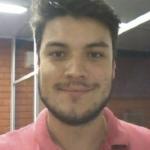
Speaker: Nícolas Gehm
Graduating in Computer Engineering at the Federal University of Santa Maria, he participated as a team leader in robotics competitions. He is currently a Qiron Education instructor and developer at Qiron Robotics.
Tutorial 03: Aeronave Remotamente Pilotada – do Conceito ao Mercado
22/10 (Sunday): 11:00 – 12:00
Abstract: Also known as Drones, the Remotely Piloted Aircrafts are revollutionizing various markets due to the benefits provided by their use. In this presentation, we will have a general approach on these systems: emergence, evolution, national development, market demands, embedded systems, flight safety and regulation.
Speaker: Saulo Francisco da Silva Penna Neto
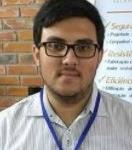 Saulo Francisco da Silva Penna Neto, graduando em Engenharia de Controle e Automação na UFSM, diretor executivo e co-fundador da Auster Tecnologia, capitão na classe regular da Equipe Carancho Aerodesign, possui vasta experiência em projeto e fabricação de Aeronaves Remotamente Pilotadas para competição SAE Aerodesign. Seu amplo conhecimento em aerodinâmica, navegação, estabilidade e controle, desempenho e ferramentas de simulação computacional foram obtidos a partir do projeto e fabricação de mais de 30 aeronaves. Dentre estas, destacam-se os sistemas AT-120 e AT-190, ARPs classe 3 presentes no mercado com diversas aplicações civis e também participações em operações militares.
Saulo Francisco da Silva Penna Neto, graduando em Engenharia de Controle e Automação na UFSM, diretor executivo e co-fundador da Auster Tecnologia, capitão na classe regular da Equipe Carancho Aerodesign, possui vasta experiência em projeto e fabricação de Aeronaves Remotamente Pilotadas para competição SAE Aerodesign. Seu amplo conhecimento em aerodinâmica, navegação, estabilidade e controle, desempenho e ferramentas de simulação computacional foram obtidos a partir do projeto e fabricação de mais de 30 aeronaves. Dentre estas, destacam-se os sistemas AT-120 e AT-190, ARPs classe 3 presentes no mercado com diversas aplicações civis e também participações em operações militares.
Tutorial 04: Tutorial using SILAS® web platform in SEPOC 2017
22/10 (Sunday): 14:00 – 15:00
Megatecnologia develops customized web software for companies in the energy and agribusiness sectors. Its mission is to provide adequate solutions that meet the needs of these clients through co-creation, always wishing to exceed their expectations with a service of the highest quality.
Abstract: This presentation will explore SILAS® benchmark web software in its architecture, key functionalities, explore the innovation of intelligent algorithms that are loaded into the web software, present an overview of the challenges of the use case of using web software integrated with Google Maps applied in an electricity distribution concessionaire.
Speaker: Eduardo da Silva Martins
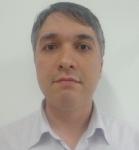
Eduardo is currently director of production for Megatecnologia. Graduated in 2004 from the Federal University of Santa Maria, he has experience in the area of Computer Science, with emphasis in Computer Systems, being author in several records of computer programs in the areas of agribusiness and energy.
Tutorial 05: The teaching of Smart Grids in the Electrical Engineering curriculum – A practical approach with the DeLorenzo Didactic Workbench
22/10 (Sunday): 15:00 – 16:00

Abstract: Smart grids are driving a revolution in the traditional model of electric power systems in their various segments of generation, transmission, distribution and consumption of electricity. The teaching of Smart Grids, therefore, should be considered a current topic in electrical engineering curricula in order to prepare the next generation of engineering professionals to meet the new challenges of the electric power sector. This tutorial will present the experience of the IFPB in the use of the DeLorenzo didactic workbench as a facilitator of the teaching-learning process, from the basic principles of electrical engineering to the use of emerging technologies of smart grids and integration of renewable energies through simulations of real situations. The combination of theoretical and experimental results allows us to obtain a more solid knowledge in this new paradigm of the electricity market.
Speaker: Franklin Martins Pereira Pamplona

Franklin Martins Pereira Pamplona graduated in Electrical Engineering from the UFPB in 1993, and obtained Master’s and Doctor’s degrees in Electrical Engineering, in the area of Energy Processing, by the UFCG, in 1996 and 2006, respectively. He has been Professor of Basic, Technical and Technological Education since 1996 and Professor of IFPB Campus João Pessoa, where he currently coordinates the undergraduate course in Electrical Engineering. Participated in several research and development projects, national and international collaboration, and applied research. His interests include studies, operation and planning of power systems, renewable energies, distributed generation and smart grids.
Tutorial 06: RT-LAB and eHS for Real-Time Simulation Applications in Power Electronics
22/10 (Sunday): 16:00 – 17:00
OPAL-RT TECHNOLOGIES is a Canadian provider of real-time digital simulation solutions for power systems, power electronics and control.
Abstract: This conference aims to describe the advantages of real-time digital simulation during the development of power electronics and controls as well as the tests using Hardware-in-the-loop application. Over the last 20 years, OPAL-RT TECHNOLOGIES has developed solutions to make this technology accessible and easy to use. During this conference, a live demo of RT-LAB platform will be shown as well as the solver eHS which allows the implementation of power electronics circuits built in popular third-party software directly on the FPGA.
Speaker: Sergio Atayde
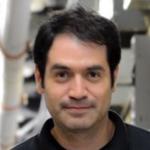
Sergio Atayde received the B. Eng. and a M. Eng. degrees from UNAM (National Autonomous University of Mexico). He pursuited post-graduate studies and research in the area of renewable energies with specialization in DFIG-based generation and SSR resonance at Département de Génie Électrique, École de Technologie Supérieure, Université du Québec, Montreal, QC, Canada. His work experience and interests comprise: embedded systems, control theory, Power Electronic, renewable energies, WECS. He’s worked for the last 4 years with OPAL-RT TECHNOLOGIES, a real-time simulation company, as a Field application Engineer and model simulation specialist in the areas of HIL and RPC for power electronics.
Tutorial 07: Controller Hardware in the Loop (C-HIL) – Reinventing design, testing, and validation of power electronics and microgrid controls
Abstract: Until recently there were no Hardware in the Loop (HIL) systems available for power electronics and microgrids. With the advent of low-latency real-time simulation technology, fueled by powerful system on chip devices that combine the flexibility of general-purpose processors with the low latency of the FPGA fabric, the way power electronics and microgrid control systems are designed tested and validated is being radically transformed. In this tutorial we will cover the fundamentals of low-latency ultra-high fidelity real time simulation technology including both computational algorithms as well as processor architecture. In addition, we will cover a range of industrial application examples: from solar inverter controller testing all the way to terrestrial and shipboard microgrid systems. We will also show how HIL empowers engineers and organizations to continuously exceed their controller software quality, performance, and time-to-market goals thus paving the way to superior power electronics and power systems products.
Speaker: Ivan Celanovic
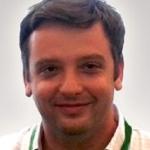
Dr. Ivan Celanovic is the Co-founder, Director and Chief Business Development Officer of Typhoon HIL Inc., and was a member of the team that developed both the theoretical foundation as well as the experimental validation of the world’s first 1µs ultra-low latency Hardware-in-the Loop (HIL) real-time emulator platform for power electronics and microgrids. He is responsible for technology and product development vectors, business development, and innovation. His research and development work spans ultra-high fidelity real-time emulation of power electronics and micrigrids, smart grid technologies, and applied controls. Dr. Celanovic has published over 80 journal publications, 5 patents, and two book chapters. He holds an Sc.D. degree from the Massachusetts Institute of Technology (MIT), Cambridge, an M.Sc. degree from Virginia Polytechnic Institute and State University, and a Diploma Engineer degree from the University of Novi Sad, Republic of Serbia, all in electrical engineering and computer science.
Plenary Speakers
Plenary Session 01: Power Converters and the Smart Grids: Model Predictive control of Multilevel Converters
Abstract: The increase penetration of alternative energies sources in a distributed generation scheme, have introduced new concepts in the electrical network. It is necessary to integrated different energies sources with different power levels as well as high variability of the energy sources. Then, it is necessary to incorporate new storage elements to obtain sustainable solutions. Behind these high profile research areas as Renewable Energy Sources or Smart Grids, Power Electronics has been almost hidden, but is the vital part of many essential systems. In Medium and High voltage Grids the use of multilevel converters is almost mandatory. The Finite State Predictive Control is a particular case of the well-known Model based Predictive Control (MPC) which is very well suited to be applied in the control of Multilevel converters. It is very simple to integrate the control of external variables such as currents, voltages or power, together with the internal variables of the converter such as voltages over the DC bus capacitors.
Speaker: María Inés Valla – Universidade Nacional de la Plata, Argentina
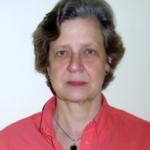
She received her Electrical Engineering (1980) and Doctor in Engineering (1994) degrees from the National University of La Plata (UNLP), Argentina. She is currently a full-time professor and researcher at the same university. Her major topics of interest lie in power converters, renewable energies, and power quality. Dr. Maria Ines is the head of the Power Electonics Group at the Industrial Electronics, Control and Instrumentation Laboratory (LEICI) and a member of the Argentinian National Research Council. She is a Distinguished Lecturer of the IEEE Industrial Electronics Society and of the IEEE Industry Applications Society; since 2010 she is an IEEE Fellow. She is also a member of the Buenos Aires Academy of Engineering since 2007. She has authored many relevant publications and contributes as Co-Editor-in-Chief of the IEEE Transactions on Industrial Electronics, and as Associate Editor of the Revista Iberoamericana de Automacíon e Informática Industrial from 2007 to 2013.
Plenary Session 02: Demand and Supply of Energy – Smart Solutions are Saving Energy for Lighting
Abstract: Energy is becoming a scarce good, although regenerative sources are growing. The main potential for future energy management is not first of all to generate more energy but to save energy by intelligent control wherever possible. The costs of smart control for energy saving are becoming smaller than the energy cost savings themeselves. An example for lighting, based on the efficiency of LEDs, even being already much more efficient than the „good old light bulb“, shows that intelligent control of light is feasible on smaller expense for customers than traditional illuminants with manual switches. The upcoming „Internet of Things“will support smarter solutions that have not only more functionality, but also great benefit in costs. Low-cost sensors, energy harvesting, digital control, and even highest integration of power supplies will not be obstructive to provide energy saving based on growing intelligence of control. Decentralized control structures with local wireless communication, additionally to cloud computing and internet-based communication will provide increasing opportunities to attract energy customers to interact with energy providers and energy distributors for lower costs on all hands.
Speaker: Matthias Radecker – Fraunhofer Institute, Germany

Matthias Radecker received the Diploma degree in electrical engineering and the Dr.-Ing. degree from the University of Chemnitz, Germany, in 1978 and 2000, respectively. He joined the Fraunhofer Institute IMS in Duisburg in 1990, and was responsible for Smart-Power technologies and high-temperature integrated circuit design. In 2002 he joined the Fraunhofer Institute IAIS in Birlinghoven as the head of the power electronics group. Since 2009 he was responsible for piezoelectric technology and related power electronics and analogue-mixed-signal integrated circuit control research at Fraunhofer Institute for Reliability and Micro-Integration IZM in Berlin. Since 2016 he is with Fraunhofer Institute of Integrated Circuits, Development of Adaptive Systems Dresden, where he is responsible for smart-power circuits, systems and components research and development. His research interests include PSoC, piezoelectric transformers, piezoelectric generators, lighting applications, power control, linear assisted DC-DC conversion, digital platform power control programming and analogue-mixed-signal integrated circuit design. He holds patents in the area of resonant power converters and integrated/discrete control and has published related papers. His research interests include heuristic methods for sensitivity analysis and probabilistic evolutionary circuit and system optimization.
Plenary Session 03: Reliability of Power Electronic Systems – Challenges and State-of-the-Art
Abstract: Industry leading companies are making efforts to the transition from product providers to service providers. The life-cycle performance of power electronic systems in industry applications are becoming more and more important. Power electronic converters need to be designed and manufactured by considering not only the time-zero performance, but also the life-cycle performance in terms of reliability and efficiency. This talk will firstly start to discuss the motivations for reliability-oriented design and control of power electronic systems. Secondly, the specific challenges will be addressed to the understanding of failure mechanism of key power electronic components, lifetime and reliability modeling, accelerated testing, and condition monitoring. Thirdly, the state-of-the-art reliability-oriented design method, mission profile based component-level and system-level reliability modeling, and condition monitoring of passive components and active devices will be introduced by a few case studies
Speaker: Huai Wang – Aalborg University, Denmark

Huai Wang is currently an Associate Professor and a Research Thrust Leader with the Center of Reliable Power Electronics (CORPE), Aalborg University, Denmark. His research addresses the fundamental challenges in modelling and validation of power electronic component failure mechanisms, and application issues in system-level predictability, condition monitoring, circuit architecture, and robustness design. Prof. Wang is a lecturer of a 2-day industry/PhD course on Capacitors in Power Electronics Applications, and a 3-day industry/PhD course on Reliability of Power Electronic Systems held annually at Aalborg University. He is an invited speaker at the European Center for Power Electronics (ECPE) workshops, and a tutorial lecturer at leading power electronics conferences (ECCE, APEC, EPE, PCIM, IECON, etc.). He has co-edited a book on Reliability of Power Electronic Converter Systems in 2015, filed four patents in capacitive DC-link inventions, and contributed a few concept papers in the area of power electronics reliability. Prof. Wang received his PhD degree from the City University of Hong Kong, Hong Kong, and Bachelor degree from Huazhong University of Science and Technology, Wuhan, China. He was a visiting scientist with the ETH Zurich, Switzerland, from August to September 2014, and with the Massachusetts Institute of Technology (MIT), Cambridge, MA, USA, from September to November 2013. He was with the ABB Corporate Research Center, Baden, Switzerland, in 2009. He received the IEEE PELS Richard M. Bass Outstanding Young Power Electronics Engineer Award, in 2016, for the contribution to the reliability of power electronic conversion systems. He serves as an Associate Editor of IEEE Journal of Emerging and Selected Topics in Power Electronics and IEEE Transactions on Power Electronics.
Plenary Session 04: O papel da EMBRAPII no fomento à P&D e inovação no Brasil: Oportunidades para a universidade e a indústria
Resumo: Serão apresentados e discutidos: o modelo operacional da EMBRAPII, o conceito de Unidade EMBRAPII (UE), a evolução e o monitoramento da parceria UE-Empresa e o processo de participação das empresas serão também mostradas; o crescimento do número de projetos contratados e dos investimentos aplicados e aspectos relativos à propriedade intelectual. Será destacada a importância e os aspectos relativos ao espaço reservado às parcerias da EMBRAPII com diversas agências e bancos de desenvolvimento.
Speaker: Jorge Almeida Guimarães – Diretor Presidente da EMBRAPII, Brasil
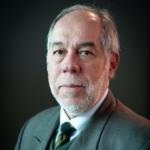
Graduado em Medicina Veterinária pela Universidade Federal Rural do Rio de Janeiro (1963), doutorado em Ciências Biológicas (Biologia Molecular) pela Escola Paulista de Medicina-UNIFESP (1972) e Pós-Doutorado pela National Institutes of Health (USA). Atuou como professor na UFRRJ, UNIFESP, Faculdade de Medicina de São José do Rio Preto-SP, na UNICAMP, UFF e UFRJ. Professor titular aposentado da Universidade Federal do Rio Grande do Sul. Pesquisador Sênior do CNPq. Foi Diretor do Conselho Nacional de Desenvolvimento Cientifico e Tecnológico (CNPq) entre 1990 a 1994, Secretário da Secretaria de Tecnologia do MCTIC em 2003, Presidente da CTNBio no período de 2004 a 2006 e Presidente da Coordenação de Aperfeiçoamento de Pessoal de Nível Superior (CAPES) de 2004 a 2015. Recebeu títulos de Professor Emérito da UFRJ em 1999, da UFRRJ em 2007, da UFF em 2012, da UFRGS em 2013 e da PUC/RS em 2015. Recebeu também títulos de Doutor Honoris Causa da University of Nottingham e de diversas universidades brasileiras. Foi agraciado com diversas comendas, com destaque para Grã-Cruz e Comendador da Ordem do Mérito Científico e com a Medalha do Pacificador, concedida pelo Exército Brasileiro. Exerceu por dois períodos a Presidência da Sociedade Brasileira de Bioquímica e Biologia Molecular. Possui larga experiência em pesquisa e orientação na área de Bioquímica. Suas pesquisas focam predominantemente em Química de Proteínas e Enzimologia, atuando principalmente nas áreas de hemostasia e trombose. Atualmente é Diretor Presidente da Empresa Brasileira de Pesquisa e Inovação Industrial – EMBRAPII.
Invited Panelists
Panel Discussion 01: Fast prototyping: real-time and hardware-in-the-loop simulation systems.
Panelists:
Chair: Humberto Pinheiro – UFSM

Possui graduação em Engenharia Elétrica pela Universidade Federal de Santa Maria (1983), mestrado em Engenharia Elétrica pela Universidade Federal de Santa Catarina (1987) e doutorado em Electrical and Computer Engineering – Concordia University (1998). Atualmente é professor associado da Universidade Federal de Santa Maria. Tem experiência na área de Engenharia Elétrica, com ênfase em Eletrônica Industrial, atuando principalmente nos seguintes temas: controle discreto de conversores estáticos,sistemas de geração eólica, modulação para conversores estáticos é membro da IEEE Transactions on Industrial Electronics.
Alexandre Trevisan Pereira – UFSM/IFSul

Graduado em Engenharia Elétrica pela Universidade Federal de Santa Maria (2006) e Mestre em Engenharia Elétrica pela Universidade Federal de Santa Maria (2013). Atualmente é professor adjunto do Instituto Federal Sul-rio-grandense (IFSUL) e doutorando na Universidade Federal de Santa Maria. Tem experiência na área de Engenharia Elétrica atuando principalmente em controle discreto de conversores estáticos e é membro da IEEE Student Branch UFSM.
Ivan Celanovic – Typhoon HIL
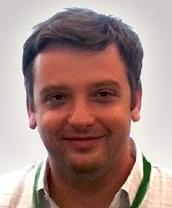 Ivan is the Chief Business Development Officer and co-founder of Typhoon-HIL, and was a member of the team that developed both the theoretical algorithms and experimental validation of the world’s first 1us ultra-low latency Hardware-in-the Loop (HIL) real-time emulator platform for power electronics. He is responsible for business development, technology and product development vectors, and innovation. He holds an Sc.D. degree from the Massachusetts Institute of Technology (MIT), Cambridge, an M.Sc. degree from Virginia Polytechnic Institute and State University, and a Diploma Engineer degree from the University of Novi Sad, Republic of Serbia, all in electrical engineering and computer science.
Ivan is the Chief Business Development Officer and co-founder of Typhoon-HIL, and was a member of the team that developed both the theoretical algorithms and experimental validation of the world’s first 1us ultra-low latency Hardware-in-the Loop (HIL) real-time emulator platform for power electronics. He is responsible for business development, technology and product development vectors, and innovation. He holds an Sc.D. degree from the Massachusetts Institute of Technology (MIT), Cambridge, an M.Sc. degree from Virginia Polytechnic Institute and State University, and a Diploma Engineer degree from the University of Novi Sad, Republic of Serbia, all in electrical engineering and computer science.
Sergio Atayde – OPAL-RT Technologies

Sergio Atayde received the B. Eng. and a M. Eng. degrees from UNAM (National Autonomous University of Mexico). He pursuited post-graduate studies and research in the area of renewable energies with specialization in DFIG-based generation and SSR resonance at Département de Génie Électrique, École de Technologie Supérieure, Université du Québec, Montreal, QC, Canada. His work experience and interests comprise: embedded systems, control theory, Power Electronic, renewable energies, WECS. He’s worked for the last 4 years with OPAL-RT TECHNOLOGIES, a real-time simulation company, as a Field application Engineer and model simulation specialist in the areas of HIL and RPC for power electronics.
Panel Discussion 02: Institutos Nacionais de Ciência e Tecnologia: Impactos no avanço da Pesquisa, Desenvolvimento e Inovação.
Panelists:
Chair: Hélio Leães Hey – UFSM / INCT-GD
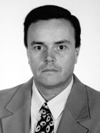
O Professor Hélio Leães Hey (pesquisador 1C do CNPq) é formado em Eng. Elétrica pela Universidade Católica de Pelotas em 1985. Mestre em Engenharia Elétrica na área de Eletrônica de Potência e Acionamento Elétrico em 1987 e Doutor em Eng. Elétrica na área de Sistemas de Energia em 1991, ambos na Universidade Federal de Santa Catarina. Entre agosto-2005 e julho-2006, realizou Pós-Doutorado na área de Tecnologia Eletrônica da Universidad de Oviedo-Espanha. Desde 1994 é Professor Titular da Universidade Federal de Santa Maria vinculado ao Depto. Processamento de Energia Elétrica (Centro de Tecnologia) onde desenvolve atividade de ensino e pesquisa junto aos Cursos de Graduação em Engenharia Elétrica e em Engenharia de Controle e Automação e no Programa de Pós-Graduação em Engenharia Elétrica (conceito 6-CAPES). Entre os anos de 1997 e 2001 e posteriormente entre 2003 e 2005, foi o Coordenador de Programa de Pós-Graduação em Engenharia Elétrica-PPGEE. Entre 2002-2004 foi membro do comitê assessor da área de Engenharia da Fundação de Amparo à Pesquisa do Rio Grande do Sul- FAPERGS. Atua como consultor Ad Hoc de diversas instituições de fomento nacionais (CAPES, CNPq e FINEP) e FAPs (FAPEMIG, FAPESP, FAPESB, entre outras). Suas áreas de pesquisa de interesse envolvem os temas ligados a eletrônica de potência. Entre 2006 e 2013 foi Pró-Reitor de Pós-Graduação e Pesquisa da Universidade Federal de Santa Maria. Entre 2008 e 2009 foi o presidente do Fórum de Pró-reitores de Pós-Graduação e Pesquisa do RS, FOPROP-RS. Entre 2008 e 2011 foi o representante do segmento das Universidades Federais no Diretório Nacional do Fórum de Pró-reitores de Pós-Graduação e Pesquisa das IES Brasileiras, FOPROP-DN. Em 2012 foi Presidente do Fórum Nacional de Pró-reitores de Pós-Graduação e Pesquisa – FOPROP. Entre 2010 e 2016 foi membro do Conselho Superior da Fundação de Amparo a Pesquisa do RS (FAPERGS), tendo presidido esse Conselho entre 2012 e 2016. Desde 2016 é membro do Comitê de Assessoramento de Engenharias Elétrica e Biomédica (CA-EE) do CNPq. Desde 2014 é o Diretor da Agência de Inovação e Transferência de Tecnologia-AGITTEC da UFSM.
Jorge Almeida Guimarães – Diretor Presidente da EMBRAPII

Graduado em Medicina Veterinária pela Universidade Federal Rural do Rio de Janeiro (1963), doutorado em Ciências Biológicas (Biologia Molecular) pela Escola Paulista de Medicina-UNIFESP (1972) e Pós-Doutorado pela National Institutes of Health (USA). Atuou como professor na UFRRJ, UNIFESP, Faculdade de Medicina de São José do Rio Preto-SP, na UNICAMP, UFF e UFRJ. Professor titular aposentado da Universidade Federal do Rio Grande do Sul. Pesquisador Sênior do CNPq. Foi Diretor do Conselho Nacional de Desenvolvimento Cientifico e Tecnológico (CNPq) entre 1990 a 1994, Secretário da Secretaria de Tecnologia do MCTIC em 2003, Presidente da CTNBio no período de 2004 a 2006 e Presidente da Coordenação de Aperfeiçoamento de Pessoal de Nível Superior (CAPES) de 2004 a 2015. Recebeu títulos de Professor Emérito da UFRJ em 1999, da UFRRJ em 2007, da UFF em 2012, da UFRGS em 2013 e da PUC/RS em 2015. Recebeu também títulos de Doutor Honoris Causa da University of Nottingham e de diversas universidades brasileiras. Foi agraciado com diversas comendas, com destaque para Grã-Cruz e Comendador da Ordem do Mérito Científico e com a Medalha do Pacificador, concedida pelo Exército Brasileiro. Exerceu por dois períodos a Presidência da Sociedade Brasileira de Bioquímica e Biologia Molecular. Possui larga experiência em pesquisa e orientação na área de Bioquímica. Suas pesquisas focam predominantemente em Química de Proteínas e Enzimologia, atuando principalmente nas áreas de hemostasia e trombose. Atualmente é Diretor Presidente da Empresa Brasileira de Pesquisa e Inovação Industrial – EMBRAPII.
Osvaldo Ronald Saavedra Mendez – UFMA / Presidente SBA
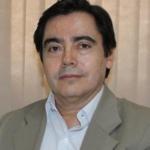
Osvaldo Ronald Saavedra Mendez concluiu o doutorado em Engenharia Elétrica pela Universidade Estadual de Campinas em 1993. Atualmente é professor titular da Universidade Federal do Maranhão. É co-fundador do programa de Pós-Graduação de Engenharia de Eletricidade da UFMA, fundador do Núcleo de Energias Alternativas da UFMA, Coordenou a fundação do Instituto de Energia Elétrica na UFMA. Coordenou e/ou participou em mais de 20 projetos de pesquisa e de desenvolvimento, de colaboração nacional e internacional, e de pesquisa aplicada. Foi presidente do VII SBAI /IEEE-LARS, coordenador local SBRN 2004, coordenador local do 2004 IEEE MLSP e membro freqüente de comitês de congressos nacionais e internacionais. Foi Coordenador da Região nordeste da Sociedade Brasileira de Automática (SBA) e membro do Conselho Superior dessa Sociedade por dois períodos. Foi diretor vice-presidente da SBA pelo biênio 2010-2012 e membro da Comissão de Avaliação Trienal de Área – Engenharias IV- CAPES nos anos 2010 e 2013. É membro do comitê editorial de várias revistas, revisor de vários periódicos, membro da SBA e IEEE. Seus interesses abrangem operação de sistemas modernos de energia elétrica, microrredes e energias renováveis. De 2011 a 2014 foi Secretário Adjunto de Ciência e Tecnologia do Estado do Maranhão. Atualmente é diretor-presidente da SBA pelo biênio 2017-2018, membro do CA-EE do CNPq e coordenador do Instituto Nacional de Ciência e Tecnologia em Energias Oceânicas – INEOF.
Cassiano Rech – UFSM / Presidente SOBRAEP

Recebeu o grau de Engenheiro Eletricista, Mestre e Doutor em Engenharia Elétrica pela Universidade Federal de Santa Maria (UFSM), Santa Maria, RS, em 1999, 2001 e 2005, respectivamente. De 2005 à 2008, foi professor associado do Departamento de Tecnologia da Universidade Regional do Noroeste do Estado do Rio Grande do Sul (UNIJUÍ). De fevereiro de 2008 à agosto de 2009 foi professor adjunto do Departamento de Engenharia Elétrica da Universidade do Estado de Santa Catarina (UDESC). Desde setembro de 2009 é professor adjunto do Departamento de Processamento de Energia Elétrica (DPEE) da Universidade Federal de Santa Maria. Em 2013 participou da Comissão Organizadora do 12o Congresso Brasileiro de Eletrônica de Potência (COBEP’2013), como Coordenador Financeiro. Foi Vice-Presidente da Associação Brasileira de Eletrônica de Potência (SOBRAEP) e Editor da Revista Eletrônica de Potência durante o biênio 2014-2015. Desde 2016, é Presidente da SOBRAEP. Atuou como Coordenador do Programa de Pós-Graduação em Engenharia Elétrica da UFSM (conceito 6 CAPES) de 2015 à 2017. É Senior Member da IEEE e membro da SOBRAEP. Sua principais áreas de interesse são: conversores multiníveis, modelagem e controle de conversores estáticos de potência, fontes alternativas de energia e geração distribuída.
Panel Discussion 03: Perspectivas de um Modelo Regulatório para Geração Distribuída de Energia Elétrica.
Panelists:
Chair: Tiago Marchesan – UFSM

Tiago Bandeira Marchesan é graduado e doutor em engenharia elétrica pela UFSM. Foi professor do curso de Engenharia Elétrica da Universidade do Vale do Rio dos Sinos (UNISINOS) e da Universidade do Noroeste do Estado do RS (UNIJUI). Coordenou projetos de Pesquisa e Desenvolvimento na inciativa privada nos três anos e meio em que foi pesquisador do Grupo WEG T&D. De 2014 a 2107 participou da criação da Agência de Inovação e Transferência de tecnologia da UFSM onde foi Coordenador de Transferência de Tecnologia inovando na profissionalização das relações da UFSM com a sociedade. É professor do Programa de Pós-Graduação em Engenharia Elétrica e hoje coordena diversos projetos de P&D com a Inciativa Privada, atuando fortemente na área de equipamentos para o sistema elétrico de potência.
Kleber Costa Corrêa – ELETROSUL

Kleber Costa Corrêa atua no Departamento de Regulação e Negócios da Eletrosul, no período de 2013 a 2017 foi chefe da Sucursal América Central da Eletrobras cujo escritório era sediado no Panamá atuando na representação da Eletrobras na região e na prospecção de projetos de geração de energias renováveis e de transmissão de energia. Trabalhou previamente na área de planejamento e coordenação de novos projetos de Transmissão de Energia da Eletrosul, possuindo 10 anos de experiência no Setor Elétrico. É Engenheiro de Produção Civil pela UFSC, Engenheiro Eletricista pela UNISUL e possui MBA em Negócios Internacionais pela Florida International University de Miami, EUA. Ao longo de sua experiencia profissional participou de cursos em gerenciamento de projetos e avaliação de negócios em energias renováveis.
Diego Brancher – ANEEL

Mestre em Engenharia Elétrica pela Universidade Federal de Santa Catarina. Graduado em Engenharia Elétrica pela Universidade Federal de Santa Maria. Área de atuação acadêmica em Planejamento de Sistemas Elétricos e Qualidade de Energia Elétrica. Desde 2008 trabalha na Agência Nacional de Energia Elétrica – ANEEL, onde desenvolveu atividades de regulação técnico-econômica no setor de distribuição de energia elétrica. Atualmente está lotado na Superintendência de Gestão Tarifária trabalhando com Estrutura Tarifária.
Daniel Bernardon – UFSM

Professor Associado I da Universidade Federal de Santa Maria – UFSM. Coordenador do Programa de Pós-Graduação em Engenharia Elétrica – PPGEE/UFSM (Conceito CAPES 6). Bolsista de Produtividade do CNPq em Desenvolvimento Tecnológico e Extensão Inovadora DT-2. IEEE Senior Member. Doutor em Engenharia Elétrica pela Universidade Federal de Santa Maria (2007). Possui mestrado em Engenharia Elétrica pela Universidade Federal de Santa Maria (2004), especialização em Planejamento de Sistemas de Distribuição pela Universidade Presbiteriana Mackenzie (2001) e graduação em Engenharia Elétrica pela Universidade Federal de Santa Maria (2000). Tem experiência na área de Engenharia Elétrica, com ênfase em Sistemas Elétricos de Potência, atuando principalmente nos seguintes temas: redes elétricas inteligentes, modelagem e otimização de sistemas, operação e planejamento de redes de distribuição. Também atuou dez anos no setor elétrico, trabalhando nas concessionárias de energia elétrica RGE e AES Sul.
Rap Session 1: Regulamentação de inversores fotovoltaicos: Demandas, desafios e oportunidades
Panelists:
Chair: Lucas Vizzotto Bellinaso – UFSM

Possui graduação em Engenharia Elétrica (2012), mestrado (2014) e doutorado (2017) pela Universidade Federal de Santa Maria. Atua principalmente nos seguintes temas: projeto e segurança de sistemas fotovoltaicos, conversores estáticos aplicados a sistemas fotovoltaicos e gerenciamento de potência/energia de sistemas híbridos. De 2012 a 2015, foi sócio-fundador da empresa Sonnen Energia. Atualmente é professor da Universidade Federal de Santa Maria (UFSM – Campus Cachoeira do Sul). É membro da IEEE, da Associação Gaúcha de Energia Solar (AGESOLAR) e da Associação Brasileira de Geração Distribuída (ABGD).
Leandro Michels – UFSM

O Prof. Leandro Michels possui graduação em Engenharia Elétrica (2001) e doutorado em Engenharia Elétrica (2007), ambos pela Universidade Federal de Santa Maria (UFSM). Atua como professor Adjunto junto ao Departamento de Processamento de Energia Elétrica da mesma universidade, onde desenvolve atividade junto ao curso de Eng. de Controle e Automação (conceito 5 ENADE) e ao Grupo de Eletrônica de Potência e Controle (GEPOC) do Programa de Pós-Graduação em Eng. Elétrica (conceito 6 CAPES). Atualmente é bolsista de Produtividade em Desenvolvimento Tecnológico e Extensão Inovadora do CNPq categoria 1D. É autor de mais de 100 artigos científicos publicados em periódicos e conferências nacionais e internacionais, depositou 2 patentes de invenção, e foi orientador principal de 5 dissertações de mestrado e 2 teses de doutorado. Em 2011 foi Coordenador Geral do V Seminário de Eletrônica de Potência e Controle (SEPOC 2011), e em 2013 foi Coordenador Técnico Adjunto do 12° Congresso Brasileiro de Eletrônica de Potência (COBEP 2013). Desde dezembro de 2015 é o primeiro secretário da Associação Brasileira de Eletrônica de Potência (SOBRAEP). Foi editor convidado da Revista Eletrônica de Potência da SOBRAEP em 2015/2016. É atualmente o coordenador do LabEnsaios GEPOC, laboratório designado pelo INMETRO para realizar ensaios de inversores fotovoltaicos conectados à rede elétrica. Possui experiência na coordenação de projetos de pesquisa financiados por órgãos de fomento, como por exemplo, CNPq, CAPES e FAPERGS, além de projetos de pesquisa e desenvolvimento financiados por empresas do setor elétrico. Possui experiência na área de Engenharia Elétrica, com ênfase em Controle de Sistemas e Eletrônica de Potência, atuando principalmente nos seguintes temas: sistemas fotovoltaicos, modelagem e controle de conversores estáticos e controle digital aplicado.
Denizar da Cruz Martins – UFSC
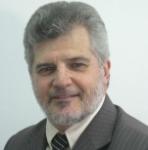
Possui graduação em Licenciatura com ênfase em Eletricidade (1978), graduação em Engenharia Elétrica (1978), mestrado em Engenharia Elétrica (1981), todos pela Universidade Federal de Santa Catarina (UFSC) e doutorado em Engenharia Elétrica pelo Institut National Polytechnique de Toulouse, França (1986). Galgou todos os níveis da carreira de magistério por concurso público, chegando a Professor Titular em janeiro de 1993. Atualmente é líder do INEP (Instituto de Eletrônica de Potência), e professor do Departamento de Engenharia Elétrica da Universidade Federal de Santa Catarina, onde leciona disciplinas de graduação e pós-graduação. Foi Chefe do Departamento de Engenharia Elétrica da UFSC por dois mandatos entre abril de 2007 a abril de 2011. Foi Coordenador do Programa de Pós-Graduação em Engenharia Elétrica do Centro Tecnológico da UFSC. Sócio Fundador da SOBRAEP (Sociedade Brasileira de Eletrônica de Potência). Foi Presidente da SOBRAEP (Sociedade Brasileira de Eletrônica de Potência). Já desenvolveu vários projetos tecnológicos em parceria com Empresas Nacionais. É membro das Sociedades: SOBRAEP, SBA e IEEE. É credenciado pelo Programa de Pós-Graduação em Engenharia Elétrica da UFSC para orientar alunos em dissertação de mestrado e em tese de doutorado. Tem experiência na área de Engenharia Elétrica, com ênfase em Eletrônica de Potência, atuando principalmente nos seguintes temas: conversores estáticos CC-CC e CC-CA, correção de fator de potência, qualidade de energia, processamento eletrônico da energia elétrica, redes ativas de distribuição, sistemas de geração distribuída, microrredes CC e CA, simulação de conversores estáticos e acionamentos elétricos. Possui em torno de 300 artigos científicos. Publicou dois livros nacionais na área de Eletrônica de Potência e dois capítulos de livros internacionais na área de processamento eletrônico da energia solar fotovoltaica.
Marcelo Pinho Almeida – USP

Engenheiro Eletricista formado pela Universidade Federal do Pará e Doutor pelo Programa de Pós-graduação em Energia da Universidade de São Paulo. É secretário do Comitê de Estudos em Sistemas Fotovoltaicos do COBEI/ABNT e membro diretor da Associação Brasileira de Energia Solar. Trabalha nas áreas de engenharia elétrica, sistemas fotovoltaicos e energias renováveis, em aplicações isoladas e conectadas à rede.
Invited Authors
PV power system with possible grid-connected and islanded operation mode and smooth transition
Roberto Buerger – UFSC
Roberto Coelho – UFSC
Tamires Porth Horn – UFSC
Denizar Cruz Martins – UFSC
Control of microgrids strategy integrating Distributed Voltage Control and Gain Scheduling
Alexandre Sanfelice Bazanella – UFRGS
Aline Thais Kafer – UFRGS
Peak Detection Method based on Neural Network for Power Line Communication
Sergio Moya – UNAM
Transformando un microprocesador simple e una máquina de procesamiento de eventos simultáneos organizados por tabla
Ricardo Korpys – UNAM
Sergio Garassino – UNAM
Javier Kolodziej – UNAM
Modulação Descontínua para Conversores Interleaved Trifásicos com Pernas em Paralelo
Antonio Carlos Duarte Riccioti – UNIR
Viviane Barrozo da Silva – UNIR
Júlio Sancho Linhares Teixeira Militão – UNIR
André Nicolini – UFSM
Fernanda Carnielutti – UFSM
Humberto Pinheiro – UFSM
Technical Visit
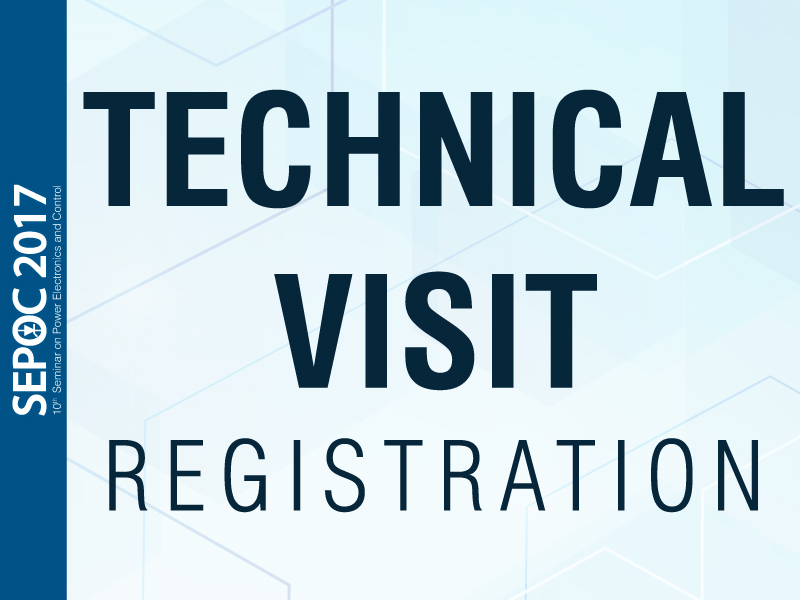
 INRI Testing Laboratories
INRI Testing Laboratories
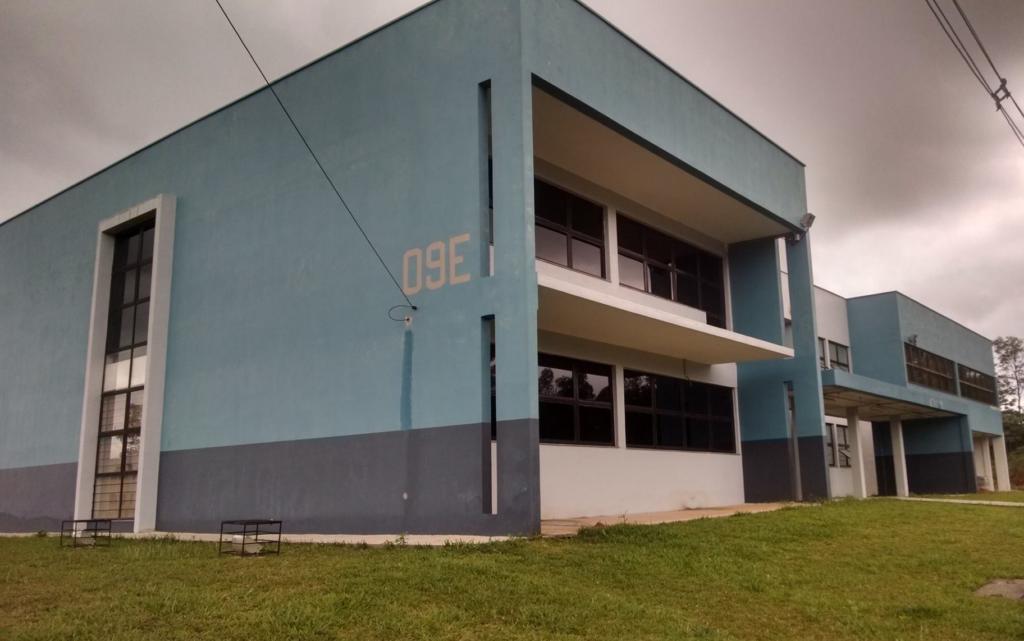

The Institute of Smart Grids (in portuguese Instituto de Redes Inteligentes – INRI) is a division of Federal University of Santa Maria for research, technological development, innovation, and services in the area of smart grids and related technologies. INRI also comprised of testing laboratory that evaluate electric equipment in the following areas:
Photovoltaic Testing Laboratory (LabEnsaios FV)
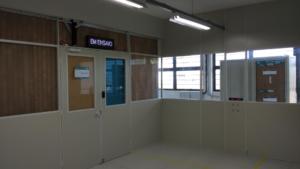 |
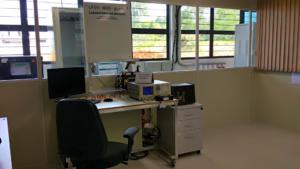 |


Photovoltaic energy sector demands from manufacturers the assurance that their products meet performance standards of each market. Brazil market requires that grid-tie PV inverters meet all requirements described in the standards NBR 16149, NBR 16150 and NBR IEC 62116. LabEnsaios FV can test PV inverters up to 50kW / 380Vac / 1000Vdc. The laboratory is under process to reach ISO 17025 accredited laboratory by the Inmetro´s General Coordination for Accreditation (Cgcre), which is the accreditation body of conformity assessment bodies recognized by the Brazilian Government.
Medium Voltage Testing Laboratory (LabEnsaios MT)
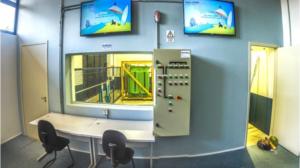 |
 |


Since 2014, distribuition transformers up to 300 kVA commercialized in Brazil must comply with the labeling program of PROCEL. The required tests are defined in a set of ABNT standards, as the NBR 5356, and are performed by laboratories accredited by INMETRO. In this context, INRI is implementing the Medium Voltage Laboratory (LabEnsaios MT), with the goal of performing the tests described in the ABNT NBR 5356 standard. The LabEnsaios MT will be able to test distributions transformers of 15 and 25 kV classes, with power up to 500 kVA. Currently, the laboratory is installing new equipments and the technicians are documenting the test procedures. After INMETRO accreditation, LabEnsaios MT will be the only facility in the South of Brazil able to execute the required tests of labeling program.
The one-hour visiting tour includes a general explanation of both labs, where will be presented the general concepts involved in their activities, the equipment employed and some overview of testing procedures.
Inscrição
We proudly invite you to attend the SEPOC 2017. Registrations for regular participants and authors must be made through the SWGE platform.
SEPOC 2017 will also have special registrations for groups of students from other cities. If you are interested, please contact the Organizing Committee.
** Please, notice: **
Due to delays and technical difficulties of a third-party company, we are now opening payment registration through direct bank transfer. In addition, the Advance Fee deadline has been moved to September 29.
Registration payments may be done through the following steps:
Step 1) Make your registration through the SWGE platform
Step 2) Bank transfer
Bank: Banco do Brasil
Agency number: 1484-2
Account number: 30511-1
On behalf of: Associação do Grupo de Eletrônica de Potência e Controle
CNPJ: 15.433.612/0001-45
Step 3) Send an e-mail to <sepoc2017@ufsm.br> with subject “Registration Payment SEPOC 2017”. Please attach your transfer receipt and inform your (i) full name, (ii) registration type, and (iii) registration number.
We apologize for any inconvenience.

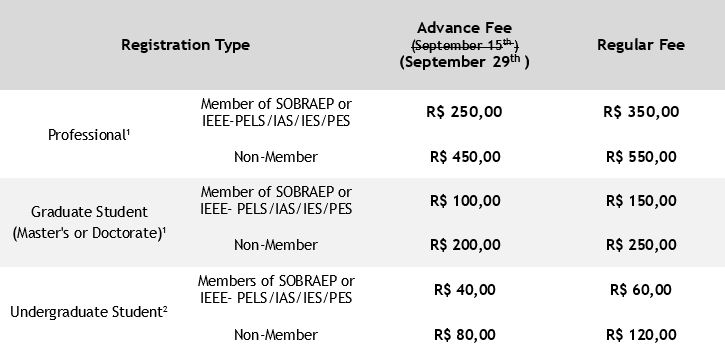
1 Professional and Graduate Student Registration includes: Conference briefcase with promotional materials, access to all technical activities, coffee-breaks, opening reception and conference dinner.
2 Undergraduate Student Registration includes: Conference briefcase with promotional materials, access to all technical activities, coffee-breaks and opening reception. The first 30 Undergraduate Registrations will include the conference dinner.
* SOBRAEP and/or IEEE Memberships must be active and up to date.
* Registrations are limited according to each registration type.
* If you want to join IEEE and the UFSM Student Branch, instructions are available at the UFSM IEEE SB page.
For Authors:
It is necessary that at least one of the authors has a Professional Registration until September 15th to have the paper published in the conference proceedings. Each professional registration grants the publishing up to 5 papers in which the registrant is an author or co-author.
All accepted papers with at least one Professional Registration will be directly assigned to an oral presentation session and must be presented by an author or qualified colleague.
Contato
General Chairs:
José Renes Pinheiro, Dr. Eng. (Chair) – Email: jrenes@gepoc.ufsm.br
Caio Ruviaro Dantas Osorio, Ms. Eng. – E-mail: caio.osorio@gmail.com
Technical Program Chair:
Rodrigo Padilha Vieira, Dr. Eng – E-mail: rodrigovie@gmail.com
Finance Chair:
João Manoel Lenz, Ms. Eng. – E-mail: joaomlenz@gmail.com
Galeria de fotos
